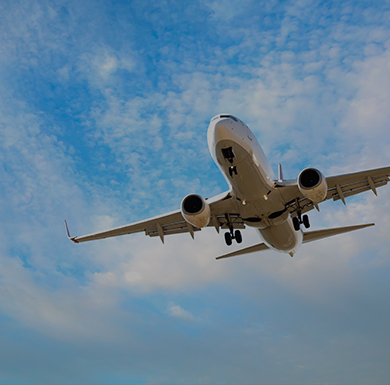
An increasing number of people aspire to become pilots. The Federal Aviation Administration (FAA), however, can’t let just anybody fly. Would you dare to board a plane if they did? There are a host of medical conditions that can ground an aspiring pilot. There are also ways around some of them.
What You Need to Operate an Aircraft
A mistake as a pilot could mean the deaths of hundreds of people. To safely operate an aircraft, you need the following:
- Clear judgment: You need to be able to make accurate split-second decisions in the air. Any condition affecting your judgment, such as a mental health disorder or any form of intoxication, can be fatal.
- Good eyesight: Pilots need the eyesight of a hawk. Both nearsightedness and farsightedness can be a threat to your own life and to the lives of passengers. You will need to read instruments, navigate, and identify potential dangers both near and far.
- Robust overall health: You need to be in good general health to deal with the physical demands of flying, such as changes in pressure and altitude, as well as long periods of sitting. If you’re flying a high-performance aircraft, you might need to be able to withstand high G-forces.
This is only a partial list of the physical qualities you will need to possess to fly safely.
Examples of Disqualifying Medical Conditions
Following is a list of medical conditions that can ground you absent a waiver:
- Angina;
- Bipolar disorder;
- Replacement of a heart valve;
- Coronary artery disease (in some cases);
- Diabetes requiring insulin or medication;
- Unexplained mental disturbance without a clear medical reason;
- Seizure disorders such as epilepsy;
- Heart transplants;
- Heart attacks;
- Permanent pacemaker;
- Certain psychological disorders;
- Substance abuse;
- Severe depression;
- Severe COPD;
- Impaired cognitive function;
- Visual impairment that glasses or contact lenses cannot correct;
- Hypertension; or
- Cardiovascular disease.
This is not an exhaustive list. Any medical condition that could affect your ability to fly might qualify.
Issuance of a Medical Certificate
Obtaining an FAA Medical Certificate is one of the requirements for becoming a pilot, but there are different classes. Which class of certificate the FAA issues depends on the type of flying you plan on doing. An Aviation Medical Examiner (AME) will perform a medical examination. They will evaluate your overall health based on their examination and your medical history.
Special Issuance
Suppose you have a disqualifying medical condition. That’s not necessarily the end of the road for your dreams of becoming a pilot. You might qualify for Special Issuance of a Medical Certificate, which can allow certification even with an otherwise disqualifying medical condition. To take advantage of it, you need to provide additional information about your health to prove that your medical condition is under control. Following are some examples:
- Well-controlled diabetes;
- Stabilized mental health (effective treatment for past depression, for example);
- Corrected vision impairments (with contact lenses, for example);
- Stable cardiac function after a history of bypass surgery or
- Successful cancer treatment.
This list could extend to hundreds of items.
Maintaining Your FAA Medical Certification
It’s not enough to prove that you are healthy at the time you receive FAA Medical Certification. You will need to undergo periodic re-certification. You must also report any changes in your medical condition to your AME.
How to Work With Your Aviation Medical Examiner (AME)
Your relationship with your AME is critical to obtaining your pilot qualification. You need to practice both honesty and candor with your AME. That means you must not only refrain from speaking falsely but also volunteer any relevant information, even if your AME never asks you. Any lack of candor or honesty could result in the revocation of your medical certificate (and your pilot’s qualification).
An Aviation Lawyer Can Help
An FAA medical lawyer might not be what you immediately think of when you anticipate trouble qualifying as a pilot. Hiring the right lawyer might be just what you need, however. Be sure to hire a lawyer with plenty of experience hiring aspiring pilots seeking medical clearance. Contact The Ison Law Firm Aviation Lawyers today to schedule a consultation.
Contact the Aviation Lawyers from The Ison Law Firm Aviation Lawyers for Help Today
You need both a pilot and a lawyer on your side for your aviation law needs. Don’t hesitate to contact our team from The Ison Law Firm Aviation Lawyers to schedule a confidential consultation with an experienced aviation lawyer today.
We’re pilots representing pilots. The Ison Law Firm Aviation Lawyers offers FAA enforcement defense and medical certification representation worldwide!
The Ison Law Firm Aviation Lawyers
Phone: Toll-Free 855-322-1215
Office Hours: Mon – Thu, 9:00 AM to 5:00 PM
Fri, 9:00 AM to 12:00 PM
Disclaimer: Messages left for attorneys after these business hours will be addressed the following business day, during business hours.

